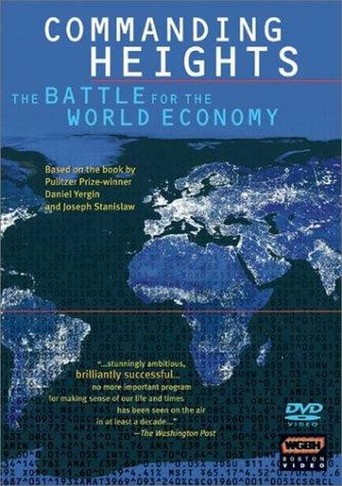GarnettTeenage
The film was still a fun one that will make you laugh and have you leaving the theater feeling like you just stole something valuable and got away with it.
Glucedee
It's hard to see any effort in the film. There's no comedy to speak of, no real drama and, worst of all.
Nayan Gough
A great movie, one of the best of this year. There was a bit of confusion at one point in the plot, but nothing serious.
Fulke
Great example of an old-fashioned, pure-at-heart escapist event movie that doesn't pretend to be anything that it's not and has boat loads of fun being its own ludicrous self.
Vicki S. Nikolaidis
There are so many errors in this documentary it should be categorized as fiction. I am writing this from Greece and the line about Greece and dictatorships is totally misleading. There was for a short period a terrible time when the military junta was in power, but it is important to remember the junta was initiated by Kissinger and supported by the USA. The script is quite muddled because it seems quotes from those appearing in the film have been clipped in order to present the view of the authors. Too much emphasis was on congratulating economists for the prizes they have won rather than offering new analysis on the issues. A range of views was not available in the documentary. The other flaws are too numerous to list. The book has even more.
luca_manf
Commanding Heights espouses Hayek's ideas and argues for greater market freedom. It does so very poignantly, captivating the audience. A perfectly balanced approach to the ideological fights of the 20th century would result in nothing more than a chronology of events.Wherever one lies on the political spectrum, Commanding Heights will definitely be a worthy watch. It outlines the positive and negative aspects of free markets and planned economies with a twist in favor of the latter. CH is an ideal watch for someone who asks himself "Why?" and wants to know more, possibly investigating the events mentioned in CH further.I am looking forward to the production of a pro-Keynesian documentary of the same caliber, so it can be offered with CH as two sides of the same argument.
haasxaar
Globalization is a polarizing topic. This documentary was made at a time obviously before the obvious nadir for free market economics of this year, 2008. With the fall of Lehmann Brothers, Bear Stearns, Chrysler, GM and the precarious situation of many other large conglomerates the hypotheses have been discredited slightly that have been presented here.A new era is dawning as I write this. The cycles that have been depicted here in Part 1 are continuous and the "Austrian School" cycle is in its last days, in my humble opinion. This documentary shows, truthfully, how Keynesian economics was discredited and replaced in the Western Economies after the turbulent decade of the 1970s. What isn't mentioned is that several other western powers did not embrace the market-solutions of the USA and UK. France, Germany, Scandinavia and Japan all continued to follow certain Keynesian parameters. The miracles of Hayek-style solutions is portrayed with little counterbalancing examples of its negative sides.PBS has really tried hard to give an extensive depiction of the development of globalization since the war. There was much here that I did not know before. The many interviews with Sachs, Clinton, Cheney, de Soto and numerous Heads of State or former Heads of State from Asia and Europe. However, the skew in favour of the process of globalisation is all too evident. Few dissenting opinions are detailed or extensively dealt with. The usual arguments of pulling several people out of poverty, and the industrialisation of the developing world are constantly reiterated to imply, cleverly, that globalisation is an irreversible and beneficial process to everyone. However, I am well versed in this topic, and my reading does not extend to Naomi Klein and Michael Moore, but the problems and difficulties that accompany globalisation are not really even hinted at in this documentary.What this film shows is a good start. A good basis for knowledge for beginners about globalisation. However, my advise is get out and read, get out and discover. There are many issues left untouched in this documentary. It is amazingly interesting to look back at this film after the failures of the Bush administration and watch Richard Cheney say that few people have been harmed in the process of globalisation. We all know now that Cheney is not exactly someone who really has altruistic instincts as his core beliefs.I'm giving this documentary 7 out of 10 because its technical quality and depth with the amount of information and many interviews. However, its rightward tilt slightly unnerved me. Yet it does deliver a rational argument, despite being incomplete, about the whole discussion that does dominate a lot of contemporary political debate. So watch it and start reading.
yashovardhan gupta
One of the best documentaries i have seen in my life.This cult movie was part of our course in macro-economics at a b-school in hyderabad, and was shown during coffee breaks and a special screening midway through the course.The music, the interviews, the chronological style of the documentary all make for fascinating viewing, never have I enjoyed a required reading for a course so much in my life.This movie is highly recommended for all who have often ruminated over questions such as Capitalism vs Communism, what is macro economics and why did the south American and south east Asian currency crises occur.Don't miss it, simply exceptional !!!

